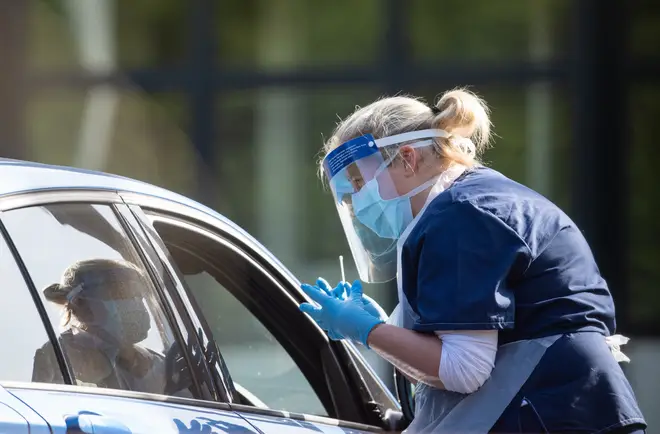
James O'Brien 10am - 1pm
19 August 2020, 10:55

The loss of smell associated with Covid-19 is "much more profound" than that from a bad cold or flu, scientists have found.
A team of researchers compared the experiences of loss of taste and smell of people who had coronavirus alongside those with other upper respiratory tract infections.
In the small study involving 30 people, they also found that unlike common cold or flu, those with Covid-19 cannot detect bitter or sweet tastes.
The researchers believe their findings, published in the journal Rhinology, could help in developing smell and taste tests as a more rapid screening tool to identify those who may have Covid-19.
Lead researcher Professor Carl Philpott, from University East Anglia's Norwich Medical School, said: "This is very exciting because it means that smell and taste tests could be used to discriminate between Covid-19 patients and people with a regular cold or flu.
"Although such tests could not replace formal diagnostic tools such as throat swabs, they could provide an alternative when conventional tests are not available or when rapid screening is needed - particularly at the level of primary care, in emergency departments or at airports."

Diagnostician brands government "too slow" to recognise taste and smell loss as Covid-19 symptoms
The team carried out smell and taste tests on 10 Covid-19 patients, 10 people with bad colds, and a control group of 10 healthy people.
Prof Philpott said: "We found that smell loss was much more profound in the Covid-19 patients.
"They were less able to identify smells, and they were not able to identify bitter or sweet tastes.
"In fact, it was this loss of true taste which seemed to be present in the Covid-19 patients compared to those with a cold."
According to Prof Philpott, the findings add to the theory that Covid-19 infects the brain and central nervous system.
He said: "Our results reflect, at least to some extent, a specific involvement at the level of central nervous system in some Covid-19 patients.
Listen & subscribe: Global Player | Apple Podcasts | Google Podcasts | Spotify
"It is particularly interesting that Covid-19 seems to particularly affect sweet and bitter taste receptors, because these are known to play an important role in innate immunity."
He said that more research is needed to understand whether genetic variations in people's bitter and sweet taste receptors might predispose them to Covid-19, or whether the infection changes how these receptors function.